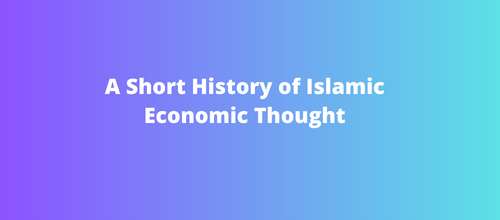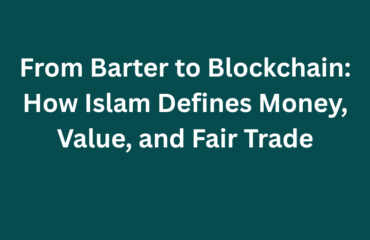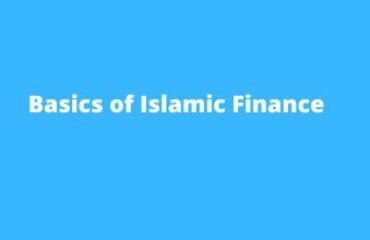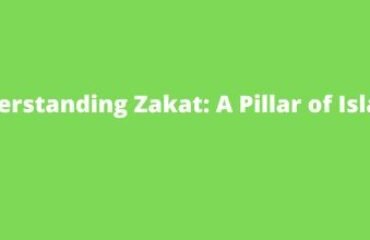Islamic economic thought is one of the oldest intellectual traditions in the world, developing from the Qur’an and the Sunnah of the Prophet Muhammad (peace be upon him) and continuing through centuries of scholarly contributions. It blends moral guidance with economic reasoning, emphasising justice, equity, and the welfare of society. While modern Islamic economics emerged as a distinct discipline in the 20th century, its intellectual roots stretch back over 1,400 years.
Early Foundations (7th–9th Century)
The Qur’an and Hadith laid down the fundamental principles of economic life: prohibition of riba (usury/interest), encouragement of trade and contracts, protection of property rights, obligation of zakat (almsgiving), and promotion of fairness in exchange. These teachings were not abstract but directly regulated the economic practices of the early Muslim community in Medina.
During the Umayyad (661–750) and Abbasid (750–1258) periods, jurists (fuqaha) developed elaborate systems of fiqh al-mu‘amalat (jurisprudence of economic transactions). They codified rules on contracts, partnerships (mudarabah and musharakah), taxation, and inheritance. The emergence of Islamic institutions such as waqf (charitable endowment) and hisbah (market regulation) gave the economy a distinctive ethical character.
The Classical Golden Age (9th–15th Century)
The flourishing of Islamic civilisation saw the rise of scholars who combined jurisprudence, philosophy, and economics. Several stand out:
-
Abu Yusuf (d. 798): Chief judge under the Abbasid caliph Harun al-Rashid, his work Kitab al-Kharaj outlined principles of taxation, public finance, and economic justice.
-
Al-Ghazali (d. 1111): Emphasised ethics in economic activity, condemning hoarding and fraud while encouraging productive trade.
-
Ibn Rushd (Averroes, d. 1198): Discussed market mechanisms, property rights, and the role of the state in ensuring justice.
-
Ibn Taymiyyah (d. 1328): Advocated fair pricing through free markets but insisted on regulation against exploitation.
-
Ibn Khaldun (d. 1406): Often regarded as the father of sociology and economic history, his Muqaddimah analysed labour, production, division of work, demand and supply, taxation, and the rise and fall of civilisations. His cyclical theory of economic prosperity anticipated aspects of modern growth theory.
These contributions show that Islamic thinkers had a rich discourse on markets, state policy, money, and ethics centuries before Western classical economics emerged.
Intellectual Decline and Transmission (16th–18th Century)
With the decline of Muslim political power after the fall of Baghdad (1258) and the rise of colonialism, Islamic intellectual life—including economics—saw stagnation. Jurisprudence became more rigid, focusing on the preservation of earlier doctrines rather than innovation. Nevertheless, Islamic economic ideas continued to influence practice through waqf, zakat institutions, and customary trade laws.
At the same time, European scholars—through translation movements in Spain and Sicily—absorbed works of Muslim thinkers like Ibn Rushd and Ibn Khaldun. Some concepts indirectly influenced later Western economic thought, though often without acknowledgement.
Modern Revival (20th Century – Present)
The 20th century brought a revival of Islamic economic thought, driven by two main factors:
-
The search for an alternative to capitalist and socialist models in newly independent Muslim states.
-
The rise of Islamic finance as a practical field.
Key thinkers include:
-
Abul A‘la Maududi (1903–1979): Emphasised Islamic economics as a comprehensive system rooted in divine guidance, rejecting both capitalism and socialism.
-
Muhammad Baqir al-Sadr (1935–1980): In Iqtisaduna (Our Economics), he provided a systematic critique of Marxism and capitalism, laying out Islamic principles of ownership and distribution.
-
Umer Chapra, Nejatullah Siddiqi, and Monzer Kahf (late 20th century): Bridged classical ideas with modern economic analysis, particularly in Islamic banking, public finance, and development economics.
Islamic Finance Movement
Beginning in the 1960s, Islamic banking emerged as the practical manifestation of Islamic economic thought. Institutions like Dubai Islamic Bank (1975) and the Islamic Development Bank (1975) pioneered interest-free finance, using profit-sharing models (mudarabah, musharakah) and trade-based instruments (murabahah, ijarah). Today, Islamic finance has become a multi-trillion-dollar global industry.
Contemporary Challenges and Directions
Modern Islamic economics grapples with reconciling classical principles with contemporary issues: financial globalisation, poverty alleviation, environmental sustainability, and digital transformation. Debates continue over whether Islamic economics is a distinct paradigm or an ethical modification of mainstream economics.
Nevertheless, the tradition remains dynamic. With renewed interest in justice-oriented economics, sustainability, and ethical finance, Islamic economic thought provides both a historical legacy and a living framework for addressing today’s global challenges.




